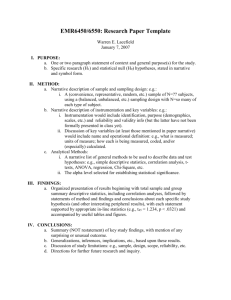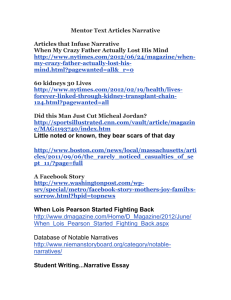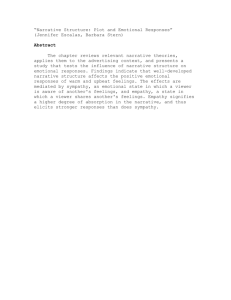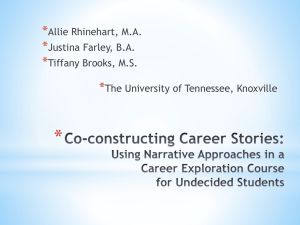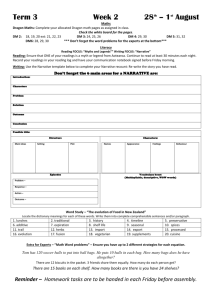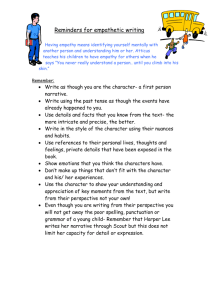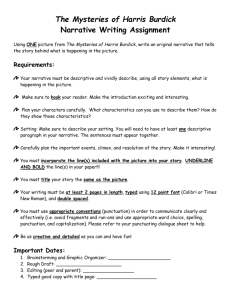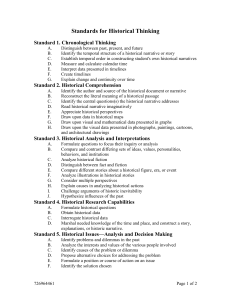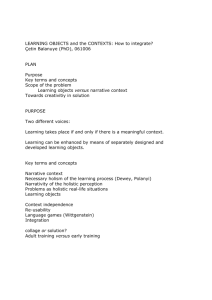Lecture 1 - Travel Narratives
advertisement
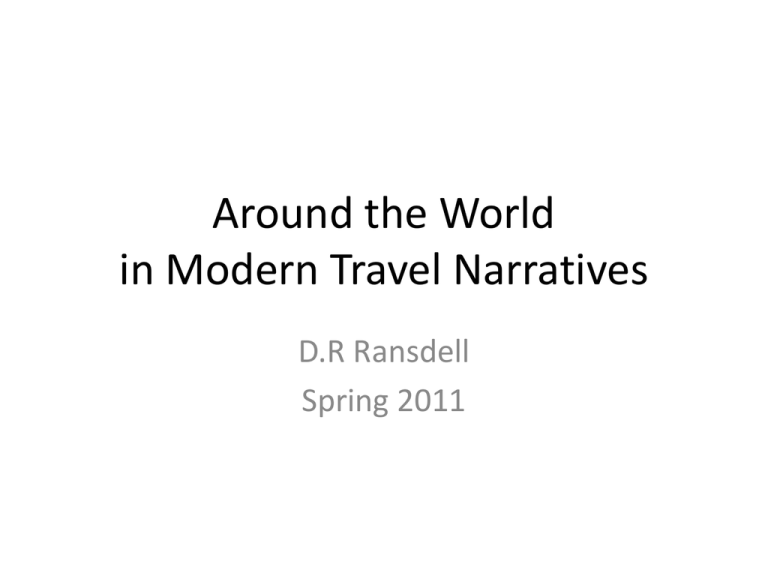
Around the World in Modern Travel Narratives D.R Ransdell Spring 2011 Why travel? • Obvious answers: • • • • Work We can (thanks, modern transport!) The mountain is there Curiosity Looking for love, obviously. Orvieto 2010 Venice 2009 Looking for……????? • • • • • Cognitive benefit Intellectual conquest To lose our bearings (Gray in Kowalewski) Is it in our nature? * Ransdells, Equator, 1972 How do you know you’re a traveler? You can’t stop! Why write about our travels? • • • • • • To record To understand To share To celebrate To point out world problems To work out personal problems Forms • • • • journal, diary shaped narrative memoir (in retrospect) Essay • Note: time frame • Note: attention to planning Why read other people’s? • • • • Learn about places you never heard of Learn about places you want to travel to Learn about places you can’t travel to All gain, no pain! What is a travel narrative? Class definition • • • • • • Travel story (some essays) Mostly factual Autobiographical * Use of literary (fictional) strategies Analysis and reflection Arrangement Worthwhile travel narrative? • • • • Definable project Blend of observation and memory* Credible author (usually, lot of time spent in target culture)* Ethical Author • Tries diligently to understand target culture* • Tries diligently to understand own culture in terms of new understanding • Narrative is designed for the audience’s understanding, not the author’s • Traveller, not a tourist* Likeable Author • • • • • • • You want to journey along with them Friendly tone Not offensive or showing off Use of humor, esp. at own mistakes Sense of adventure or curiosity Overcomes all obstacles Avoids whining Effect on Reader • • • • • Access to new worlds Teaches us something significant Helps us compare notes Inspires us to investigate Inspires us to travel Problems! • • • • • Subjective Male-dominated $$$$ Lots of travel accounts are self-aggrandizing You don’t always “get it” until later (Gray in Kowaleski) Writing the “Other” • • • • Can we really understand another culture? Shakespeare (Petrucchio and Kate) Edward Said’s Orientalism, 1978 “The Orient was almost a European invention, and had been since antiquity a place of romance, exotic beings, haunting memories and landscapes, remarkable experiences.” 1* What to do? • Proceed, but keep in mind inherent problems of projection • Try our best to achieve an “honest” understanding • Pico Iyer



